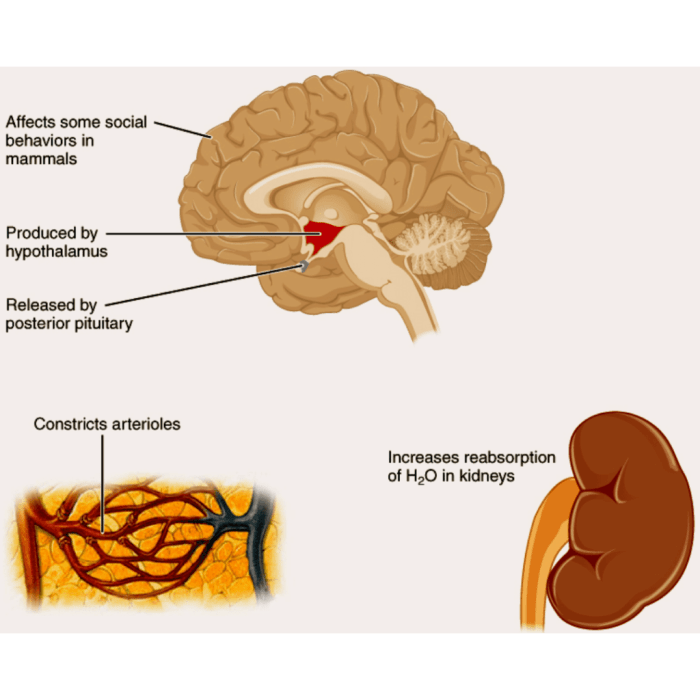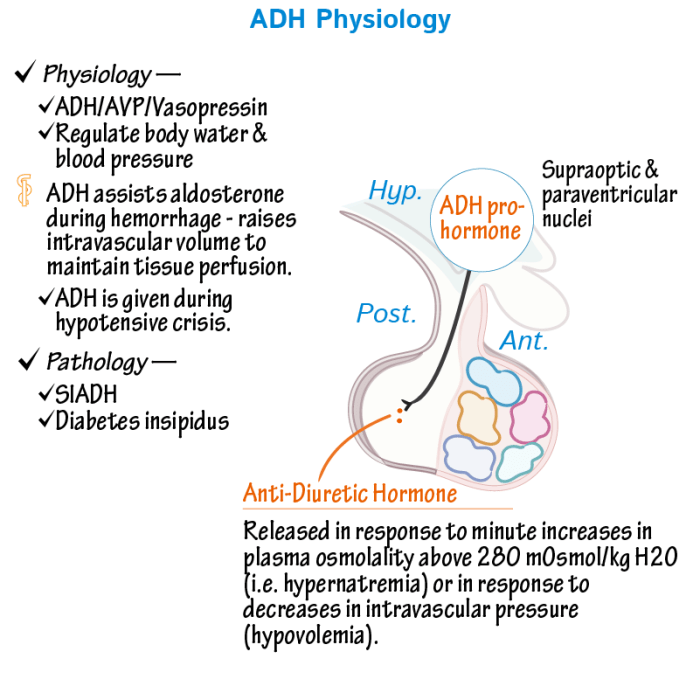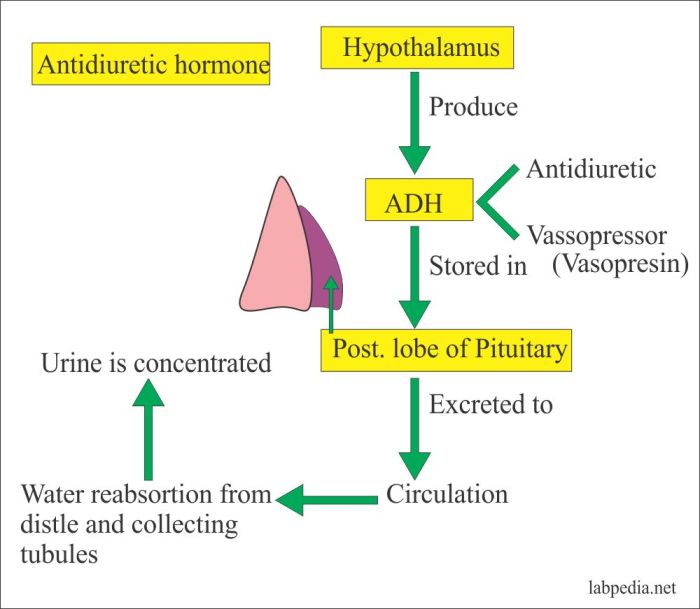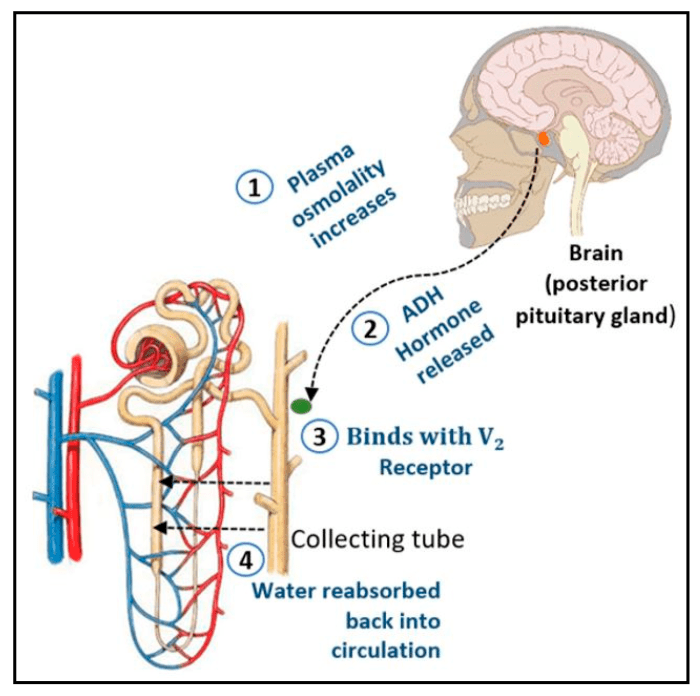Which of the following promotes the formation of dilute urine? This question delves into the intricate mechanisms that regulate urine concentration, exploring the factors that contribute to the production of dilute urine. From the role of diuretics to the impact of fluid intake, ADH secretion, and kidney function, this discussion unravels the complex interplay of physiological processes involved in urine dilution.
Diuretics

Diuretics are medications that increase urine output, leading to the formation of dilute urine. They work by inhibiting the reabsorption of water and electrolytes in the kidneys, causing more water to be excreted in the urine.
Types of Diuretics
- Loop diuretics(e.g., furosemide, bumetanide): Inhibit the reabsorption of sodium and chloride in the loop of Henle, resulting in increased urine output.
- Thiazide diuretics(e.g., hydrochlorothiazide, chlorthalidone): Inhibit the reabsorption of sodium and chloride in the distal convoluted tubule, leading to increased urine output.
- Potassium-sparing diuretics(e.g., spironolactone, triamterene): Inhibit the reabsorption of sodium and potassium in the collecting ducts, resulting in increased urine output and potassium retention.
Fluid Intake

Increased fluid intake promotes dilute urine formation by increasing the volume of fluid that is filtered by the kidneys. This increased filtration leads to a decrease in the concentration of solutes in the urine, resulting in dilute urine.
Physiological Processes
- Glomerular filtration:The kidneys filter blood in the glomeruli, producing a filtrate that contains water, electrolytes, and waste products.
- Tubular reabsorption:As the filtrate passes through the tubules, water and essential electrolytes are reabsorbed back into the bloodstream, concentrating the urine.
- Tubular secretion:Some substances, such as hydrogen ions and potassium, are secreted into the tubules, further diluting the urine.
ADH (Antidiuretic Hormone)
ADH, produced by the pituitary gland, regulates urine concentration by controlling the permeability of the collecting ducts to water. When ADH levels are high, the collecting ducts become more permeable to water, allowing more water to be reabsorbed, resulting in concentrated urine.
Conversely, decreased ADH secretion leads to dilute urine.
Factors Influencing ADH Secretion
- Blood volume:Decreased blood volume stimulates ADH secretion, promoting water reabsorption and concentrated urine formation.
- Blood osmolality:Increased blood osmolality (higher concentration of solutes) stimulates ADH secretion, leading to water reabsorption and concentrated urine.
Kidney Function: Which Of The Following Promotes The Formation Of Dilute Urine
The kidneys play a crucial role in regulating urine concentration by adjusting the reabsorption and secretion of water and electrolytes. Impaired kidney function can lead to an inability to concentrate or dilute urine, resulting in either polyuria (excessive urine output) or oliguria (decreased urine output).
Mechanisms of Dilute Urine Production, Which of the following promotes the formation of dilute urine
- Reduced glomerular filtration:Decreased glomerular filtration leads to a decrease in the amount of filtrate produced, resulting in dilute urine.
- Impaired tubular reabsorption:Damage to the tubules can impair the reabsorption of water and electrolytes, leading to dilute urine.
- Increased tubular secretion:Increased secretion of water and potassium into the tubules can dilute the urine.
Electrolyte Balance

Electrolyte balance plays a crucial role in urine concentration. Sodium, potassium, and chloride are the primary electrolytes involved in urine formation.
Sodium
Sodium is the major determinant of urine osmolality. Increased sodium intake can lead to increased urine output and dilute urine, while decreased sodium intake can result in concentrated urine.
Potassium
Potassium excretion is regulated by the kidneys. Increased potassium excretion can lead to dilute urine, while decreased potassium excretion can result in concentrated urine.
Pathological Conditions

Certain pathological conditions can lead to dilute urine formation.
Diabetes Insipidus
Diabetes insipidus is a condition characterized by excessive thirst and urine output. It is caused by either a deficiency in ADH production or resistance to ADH action in the kidneys, leading to impaired water reabsorption and dilute urine.
Renal Failure
Renal failure, characterized by impaired kidney function, can lead to an inability to concentrate urine, resulting in dilute urine.
Quick FAQs
What is the primary role of diuretics in urine formation?
Diuretics promote the formation of dilute urine by inhibiting the reabsorption of water and electrolytes in the kidneys, leading to increased urine output.
How does increased fluid intake contribute to dilute urine formation?
Increased fluid intake dilutes the urine by reducing the concentration of solutes in the filtrate, resulting in a larger volume of dilute urine.
What is the role of ADH in regulating urine concentration?
ADH (antidiuretic hormone) promotes water reabsorption in the kidneys, leading to the production of concentrated urine. Decreased ADH secretion, such as in diabetes insipidus, can result in dilute urine formation.